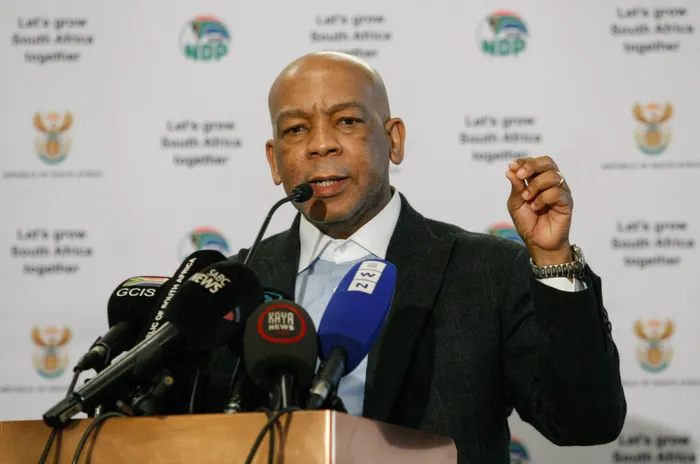Minister of Electricity admits current tariff system is unsustainable

Electricity and Energy Minister Kgosientsho Ramokgopa highlighted the detrimental effects of the rising electricity costs during a recent public address.
Image: File
The Minister of Electricity, Dr Kgosientsho Ramokgopa, has conceded that the price of electricity is not sustainable and has ordered a review of the electricity tariffs. This comes as scores of electricity payers protested over soaring prices in Tembisa and elsewhere, while City Power has extended the registration of poor households for exemption.
Ahead of the ANC NEC meeting at various venues in Gauteng, Ramokgopa revealed that South Africa is on the brink of ‘energy poverty' as the current cost of electricity is unsustainable, adding that South Africans can expect big changes to prices in the coming months.
"Electricity is unaffordable. We cannot continue along this tariff path. We are getting into a situation here in the country with new dimensions of energy poverty. There are households there, as I speak to you, that will not be able to afford the cost of electricity...Poor households are being forced to make choices between a loaf of bread and buying prepaid electricity units," he stated.
Energy expert, Professor Vally Padayachee, reflecting on the soaring prices of electricity, indicated that the rising cost of electricity is concerning as it impacts not only household budgets but also the overall economy.
"Increases of over approximately 600% in recent years are unsustainable and disproportionate to many citizens' income levels. Electricity, a public good, should arguably be like water, a fundamental right, accessible and affordable for all South Africans.
"For the average South African household, rising electricity costs have become a serious financial concern. Many families find themselves allocating a growing portion of their income to energy bills, which can lead to difficult choices between essential services such as food, education, and healthcare. This financial strain can cause stress and adversely affect family life," he stated.
To curb the effects of energy poverty, Vally stated: "The rising costs of electricity calls for urgent structural reforms to the energy pricing model in South Africa. Policymakers must explore ways to stabilise prices for households and reduce the burden on vulnerable populations. There must be a concerted effort towards transitioning to a sustainable energy future that emphasises renewable energy sources.
"By investing in sustainable energy technologies, the government can work towards reducing reliance on expensive fossil fuels, ultimately lowering electricity costs over the long term."
Taking to X, former Eskom COO, Matshela Koko, lamented the rising costs of electricity in spite of a promise that IPPs (independent power producers) would help reduce energy prices.
"Eskom's electricity sales have plummeted from 220 TWh to 180 TWh over the past decade, yet electricity costs have skyrocketed by 600%. Here’s the truth: wind, solar, and battery storage won’t lower the electricity prices you see on your electricity bills. It is irrespective of the near-zero marginal cost of production of wind and solar projects."
Meanwhile, City Power has confirmed that it has successfully registered 10,000 qualifying customers for the Free Basic Electricity (FBE).
The power utility has also extended the registration period to 31 December 2025, to allow more qualifying residents of the City of Johannesburg to benefit from the programme.
"This extension is in response to a growing demand and the need to ensure that no eligible resident is left behind as we target to register a total of 130,000 people for free monthly basic electricity. Importantly, the programme has now been expanded to also accommodate households in informal settlements and areas that fall under Eskom’s electricity supply network," said City Power spokesperson, Isaac Mangena.
City Power's statement comes after the residents of Tembisa forced Executive Mayor of the City of Ekurhuleni, Nkosindiphile Xhakaza, to reconsider the R126 electricity fixed surcharge against Ekurhuleni residents who took to the streets two weeks ago over skyrocketing electricity prices.
Mangena indicated that this will ensure that more of Johannesburg’s most vulnerable communities can benefit from this critical initiative. The FBE programme offers 50kWh of free electricity monthly to qualifying indigent households and exempts registered beneficiaries from the R200 monthly fixed charge, which consists of a R70 service fee and R130 network capacity charge.
siyabonga.sithole@inl.co.za